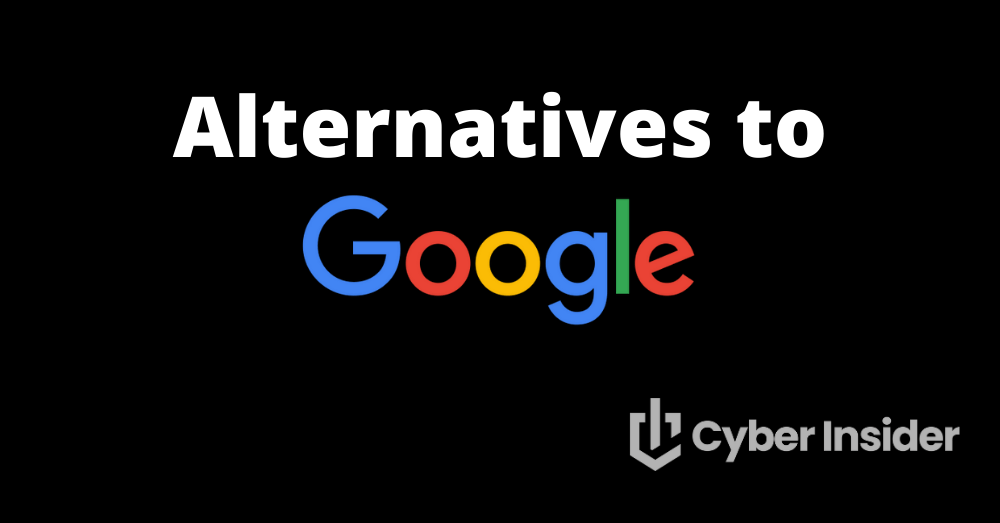
What sounds like a line from a dystopian thriller is, in fact, reality for billions of people. Behind the sleek interfaces and free services lies a surveillance machine that thrives on your personal data. Google's $230+ billion ad empire isn’t built on innovation alone — it’s built on you:
- Your clicks.
- Your voice.
- Your location.
- Your life.
And the truth is, most users have no idea just how deep the rabbit hole goes. But if you’re here, you’re starting to ask the right questions. You're not alone — and you do have many options, as you're about to discover.
Small steps to restoring your privacy
When beginning the journey of restoring digital privacy, some people get overwhelmed with all the work involved and perhaps give up. Don't let that be you. Understand that you don't need to do everything right away. Instead, start small and go step by step at your own pace. With each step in the process, you get more security and control over your personal data, which is a small victory.
So don't be overwhelmed and remember that there's no “one size fits all” with this process. Even small changes, such as using a private search engine and a privacy-focused browser, are victories. So push on in your quest for more privacy and celebrate each step of the journey.
Note: The lists below are not in rank order. Choose the best products and services based on your own unique needs.
Google search alternatives
When it comes to privacy, using Google search is not a good idea. When you use their search engine, Google is recording your IP address, search terms, user agent, and often a unique identifier, which is stored in cookies.
Here are some Google search alternatives to consider:
- Perplexity AI — Uses semantic search to generate contextually relevant answers. Cites sources, is focused on fast and trustworthy results from its own proprietary search index. Unclear what gets tracked.
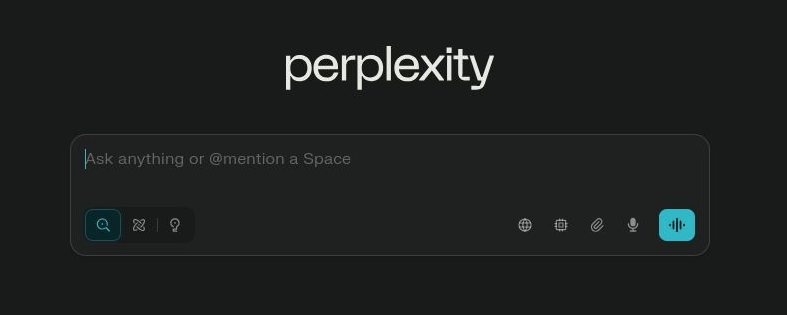
- Microsoft Copilot — An AI search engine integrated with ChatGPT for interactive, real-time conversations and context-aware results. Uses Microsoft privacy policy and Bing search data.
- Brave Search — Search engine associated with the Brave browser. Private by default.
- Mojeek — The only true search engine (rather than a metasearch engine) that has its own crawler and index (based in the UK). Does not track you.
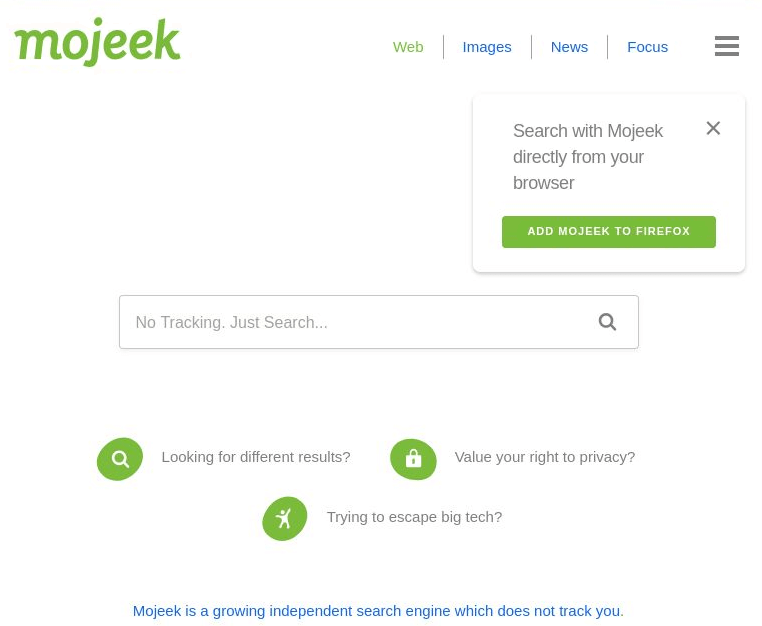
- SwissCows — A zero-tracking private search engine based in Switzerland, hosted on secure Swiss infrastructure. Does not track you.
- Qwant — A private search engine based in France. Includes advertising. Requires you to allow them to harvest some personal data.
- DuckDuckGo — A private search engine based in the US.
- YaCy — A decentralized, open source, peer-to-peer search engine.
- Ecosia — The search engine that plants trees.
See our guide on the best private search engines for additional information.
Gmail alternatives
Gmail, while widely popular, has raised serious privacy concerns over the years that have prompted many users to seek alternatives. One of the primary issues is Google's history of scanning emails for targeted advertising purposes. Additionally, Google's vast ecosystem means that data collected from Gmail can be integrated with other Google services, potentially creating a comprehensive profile of users that some find intrusive.
Here are some of the best Gmail alternatives:
- Proton Mail — Best all-around secure email service based in Switzerland [40% off coupon]
- StartMail — Private email hosted in the Netherlands with unlimited aliases [60% off coupon]
- Mailfence — Secure email for professionals and teams
- Tuta Mail — Secure email for any device
- Mailbox.org — Affordable private German email service
- Posteo — Reliable anonymous email service
- Runbox — Private email in Norway
- Zoho Mail — Secure business email service
- Kolab Now — Swiss email, compliant with GDPR, HIPAA, and PCI
- Soverin — Basic private email service
More information on these providers is available in the secure and private email services guide.
We also have a guide on the best Gmail alternatives.
Google Chrome alternatives
Like other Google products, Chrome is also quite intrusive in tracking its users. This tracking includes browsing history, search queries, and even location data, which can be unsettling for users who prioritize privacy. Now let's look at some alternatives.
- Brave — Brave is a user-friendly, Chromium-based browser that is growing in popularity. It blocks trackers and ads by default while also implementing browser fingerprinting protection
- DuckDuckGo browser — A private browser for macOS, iOS, and Android. Related to the DuckDuckGo search engine.
- Firefox browser — Firefox is a very customizable, open-source browser that is popular in privacy circles. There are also many different Firefox modifications and tweaks that will give you more privacy and security. Check out Firefox Focus for a strong mobile privacy option
- Tor Browser — A hardened and secured version of Firefox that runs on the Tor network by default. (It also does a good job against browser fingerprinting)
- Ungoogled Chromium — Just as the name says, this is an open source version of Chromium that has been “ungoogled” and modified for more privacy
- Vivaldi browser — A Chromium-based browser created by former Opera developers that focuses on privacy, customization, and productivity for users seeking an alternative to mainstream browsers
- LibreWolf — A private and secure fork of Firefox made for desktops
- Mullvad Browser — A privacy collaboration between Mullvad and Tor, available on desktop
- Waterfox — Another private and secure fork of Firefox
Of course, there are other alternatives to Chrome. These include Safari (from Apple), Microsoft Internet Explorer/Edge, and Opera, among others. But each of these comes with privacy drawbacks. More discussion on this topic can be found in the guide on secure and private browsers.
Google Authenticator alternatives
Google Authenticator makes it easy to use 2FA (two-factor authentication) on sites and services that support it. But it only works on your smartphone, and doesn't save backups of your authentication keys. If your mobile device is lost or stolen, regaining access to all your sites and services can be a real headache. There are a number of alternatives out there, including:
- Authy — Popular, free, full-featured Google Authenticator competitor.
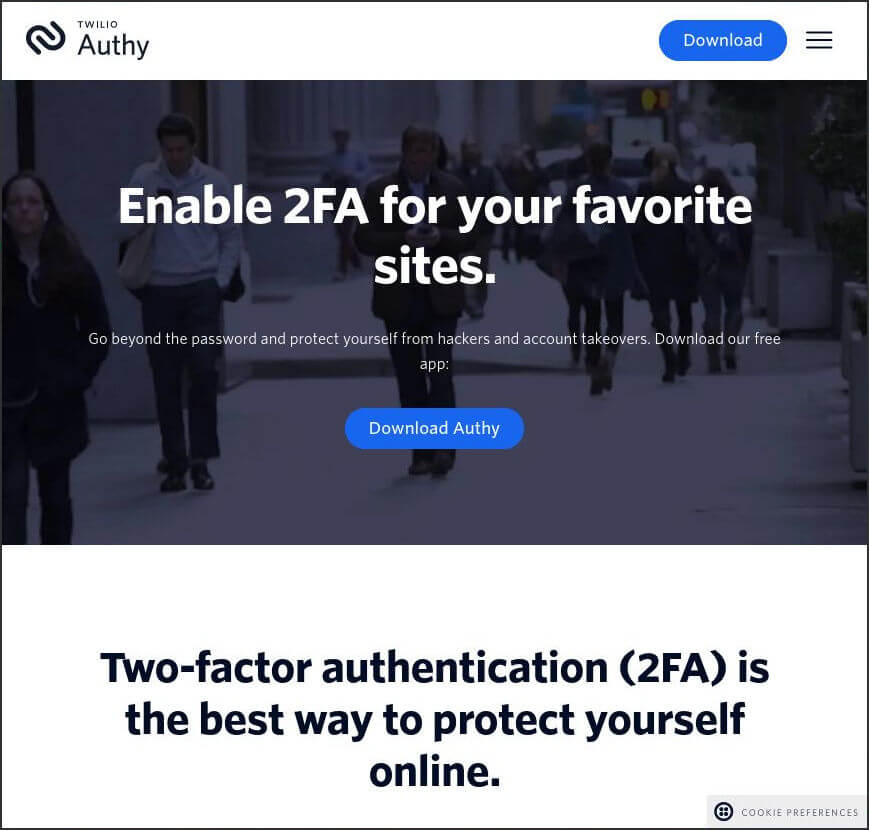
- FreeOTP — A free and open source replacement for Google Authenticator on iOS and Android devices. Attractive and easy to use, but features are limited.
- AndOTP — Another free and open source authenticator with backup/restore capability. Only works on Android devices.
Other alternatives to Google Authenticator include the authenticator built into some password managers (LastPass, for example) and hardware security keys like the YubiKey line of products.
Google Drive alternatives
If you're looking for a private, secure cloud storage option, you can check out these Google Drive alternatives:
- Notion AI — Secure storage with AI enhancements like: auto-tagging files and generating summaries. Also supports collaborative editing.

- NordLocker — From the team behind NordVPN and NordPass comes NordLocker. NordLocker is a hybrid encryption tool and secure cloud storage.
- Tresorit — A premium secure cloud storage solution that includes business-oriented features.
- Proton Drive — The team behind Proton Mail and Proton VPN launched an encrypted drive option you should consider.
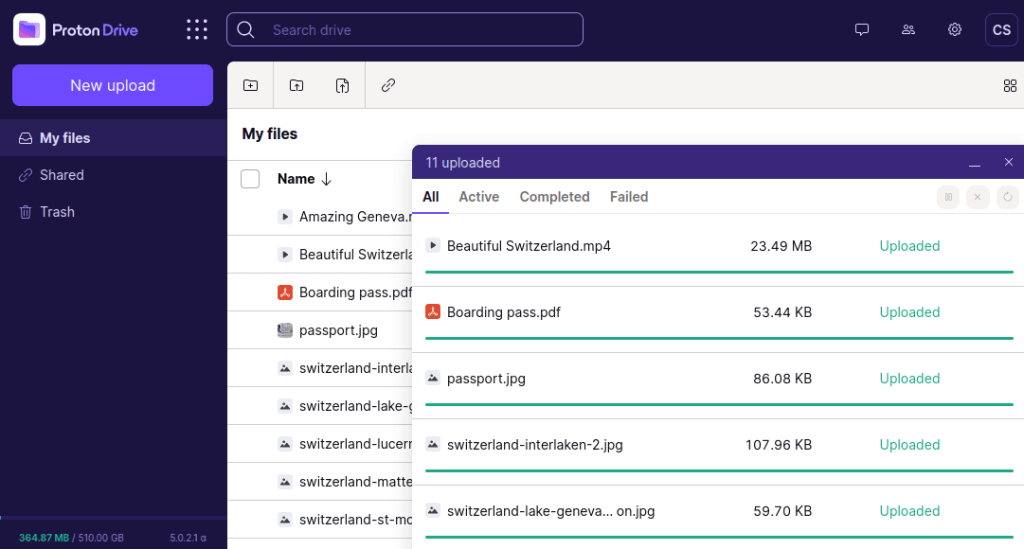
- Sync.com — Based in Canada, Sync offers a secure, encrypted cloud storage solution for businesses and individuals.
- Nextcloud — Nextcloud is an open source, self-hosted file sharing and collaboration platform, based in Germany.
- MEGA — Based in New Zealand, MEGA offers very affordable plans and lots of secure cloud storage space.
There are many other well-known Google Drive alternatives, like Dropbox, but they don't score high marks in the privacy category.
Check out our roundup of the best cloud storage solutions for more info on these and others.
Google Calendar alternative
Here are some Google Calendar alternatives:
- Lightning Calendar — An open-source calendar option developed by Mozilla. It is compatible with the Thunderbird email program and the Seamonkey software suite.
- Etar — An open source, basic calendar option for Android and iOS.
If you are looking for a solution that includes both email and calendar functionality, these providers offer that:
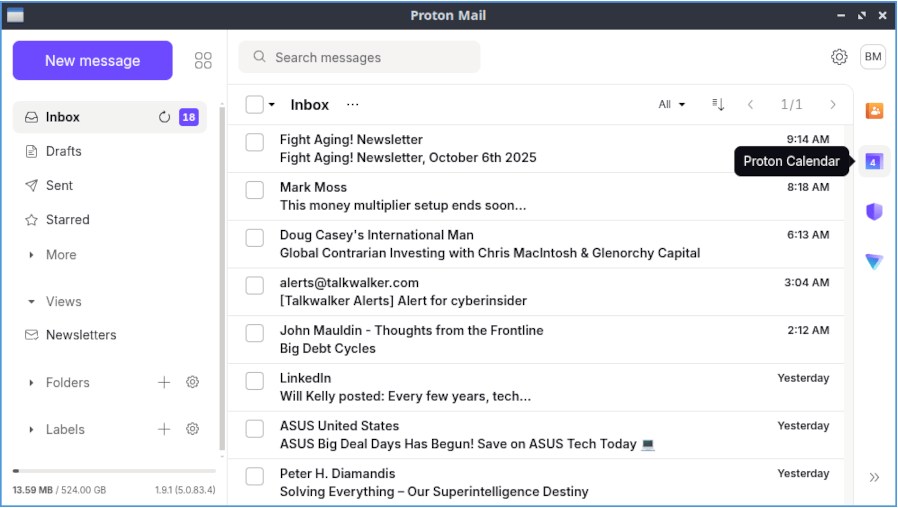
Google Docs / Sheets / Slides alternative
There are many solid Google Docs alternatives available. The largest offline document editing suite is, of course, Microsoft Office. As most people know, however, Microsoft is not the best company for privacy. Nonetheless, there are a few other good Google Docs alternatives:
- CryptPad — CryptPad is a privacy-focused alternative with strong encryption, and it's free.

- Etherpad — A self-hosted collaborative online editor that's also open source.
- Mailfence Documents — From the Mailfence team, this is a secure file sharing, storage, and collaboration tool.
- Zoho Docs — This is another good Google Docs alternative with a clean interface and good functionality, although it isn't the best choice if privacy is your top priority.
- OnlyOffice — OnlyOffice feels a bit more restricted than some of the other options in terms of features.
- Cryptee — This is a privacy-focused platform for photo and document storage and editing. It's open source and based in Estonia.
- LibreOffice (offline) — A free and open source option.
- Apache OpenOffice (offline) — Another good open-source office suite.
Google Photos alternative
Here are a few good Google Photos alternatives:
- Excire Foto — AI-based photo manager. Features facial recognition, photo culling, keyword tagging, and more with support for self-hosted or local storage.
- Piwigo — Piwigo is a great option that you can self-host. It is also free and open source.
- Lychee — Lychee is another self-hosted, open source photo management platform.
- Cryptee — Mentioned already above, Cryptee is also a great option for securely storing photos.
- PhotoPrism — An open source photo app that can be self-hosted or run on a private server.
YouTube alternatives
Unfortunately, YouTube alternatives can really be hit or miss, with most struggling to gain popularity. Some options to consider:
- Synthesia — AI video generation and hosting service, oriented toward business and education.

Google Translate alternative
Here are a few Google Translate alternatives I have come across:
- DeepL — DeepL is a solid Google Translate alternative that seems to give great results. Like Google Translate, DeepL allows you to post up to 5,000 characters at a time (and the pro version is unlimited). The user interface is good, and there is also a built-in dictionary feature. Additionally, DeepL offers a Pro version that supports an unlimited number of characters. They also offer apps for Windows and Mac that are faster and easier to use than the web app.
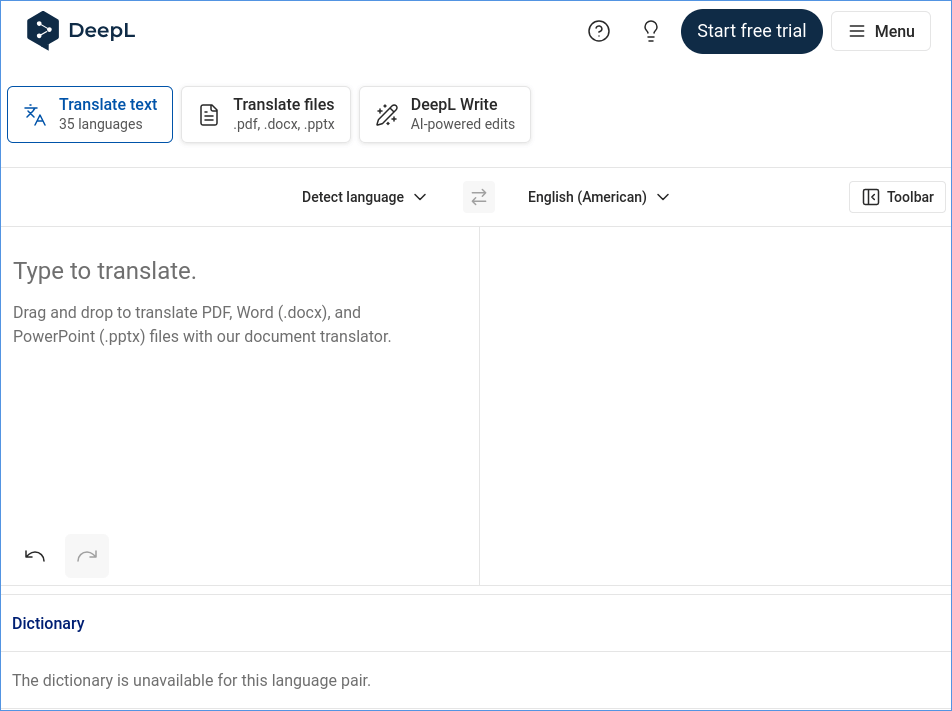
- Linguee — Linguee does not allow you to post large blocks of text like DeepL. However, it will give you very accurate translations for single words or phrases, along with context examples.
- dict.cc — This Google Translate alternative seems to do a decent job on single-word lookups, but it also feels a bit outdated.
If you want to translate blocks of text, check out DeepL. If you want in-depth translations for single words or phrases, then Linguee is a good choice.
Google Analytics alternative
For website admins, there are many reasons to use an alternative to Google Analytics. Aside from privacy concerns, there are also faster and more user-friendly alternatives that will respect your visitors' privacy.
- Plausible Analytics — Google Analytics alternative that is built and hosted in Europe, on European-owned infrastructure.
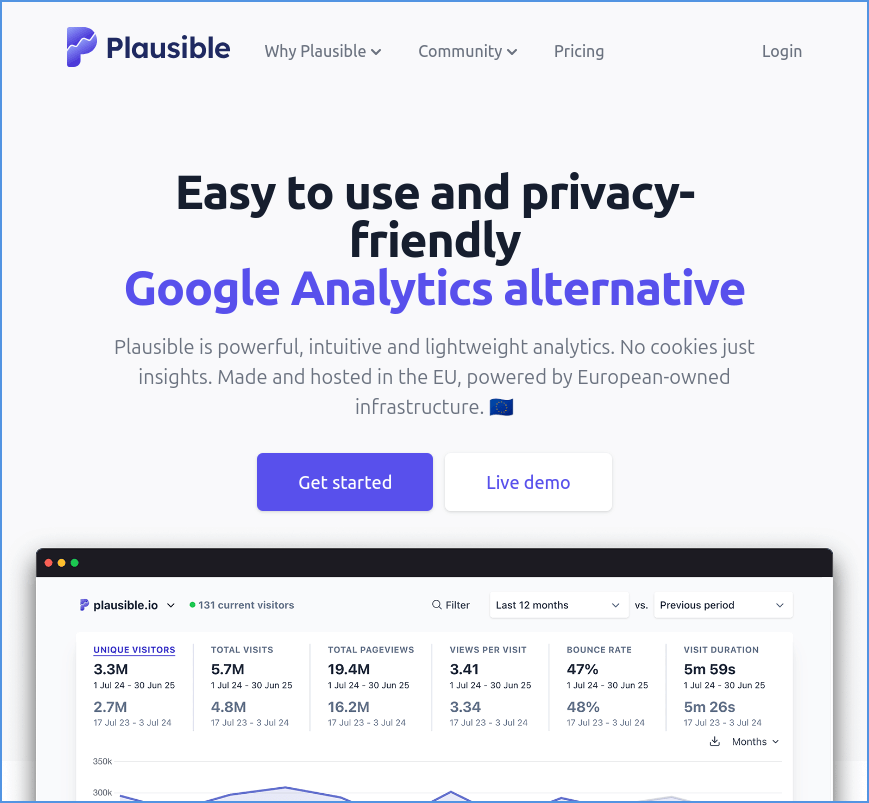
- Clicky — A great alternative to Google Analytics that truncates and anonymizes visitor IP addresses by default. It is lightweight, user-friendly, and fully compliant with GDPR regulations.
- Matomo (formerly Piwik) — An open-source analytics platform that respects the privacy of visitors by anonymizing and truncating visitor IP addresses (if enabled by the website admin). It is also certified to respect user privacy.
- Fathom Analytics — An open-source alternative to Google Analytics that's available on GitHub here. It's minimal, fast, and lightweight.
- Get Insights — Another privacy-focused analytics platform, with a full analytics suite. The front-end client is open source and available here.
- Piano Analytics — A France-based analytics provider that is fully GDPR compliant, with all data stored on French servers, and a good track record going back to 1996.
Many websites host Google Analytics because they run Google AdSense campaigns. Without Google Analytics, tracking the performance of these campaigns would be difficult. Nonetheless, there are definitely better options for privacy.
Google Maps alternative
A map alternative for PCs is OpenStreetMap.
A few Google Maps alternatives for mobile devices include:
- OsmAnd — a free and open-source mobile maps app for both Android and iOS (based on OpenStreetMap data).
- MapHub — based on OpenStreetMap data, and it does not collect locations or user IP addresses.
- Here WeGo — a free (ad-supported) service that complies with GDPR privacy requirements for all users worldwide.
Google Play Store alternative
Currently, the best Google Play Store alternative is to use F-Droid. As explained on the official site, F-Droid is an installable catalog of FOSS (Free and Open Source Software) applications for the Android platform. You can get more info on the F-Droid website or the official GitHub page. Other alternatives to the Google Play Store include:
- Aptoide — An independent marketplace for Android apps.
- APKMirror — This is a large library of APK files uploaded by different users (be careful).
- Aurora Store — A fork of the Yalp Store.
Google Chrome OS alternative
Want to ditch the Chromebook and Chrome OS? Here are a few alternatives:
- Linux — Of course, Linux is arguably the best alternative, being a free, open-source operating system with lots of different flavors. Versions of Linux are available for virtually any computing platform. We're talking supercomputers (all of the top 500 supercomputers run Linux), standard desktops, Chromebooks, and even tiny single-board computers like the Raspberry Pi.
- Tails — Tails is a free, privacy-focused operating system based on Linux that routes all traffic through the Tor network.
- QubesOS — Recommended by Edward Snowden, free and open source.
The two operating systems most popular with the general public are Microsoft Windows and Apple's macOS operating system for MacBooks. Techies have voiced privacy concerns about Windows for many years. For various reasons, it has earned a bad reputation for protecting your privacy.
While slightly better than Windows, Apple uses macOS to collect user data and has partnered with government agencies for surveillance.
Android alternatives
The biggest alternative to Android is iOS from Apple. But iOS is no big winner when it comes to privacy either. Here are a few Android OS alternatives that can really boost your mobile privacy:
- GrapheneOS — A privacy and security-focused mobile OS with enhanced app permissions and no Google services.
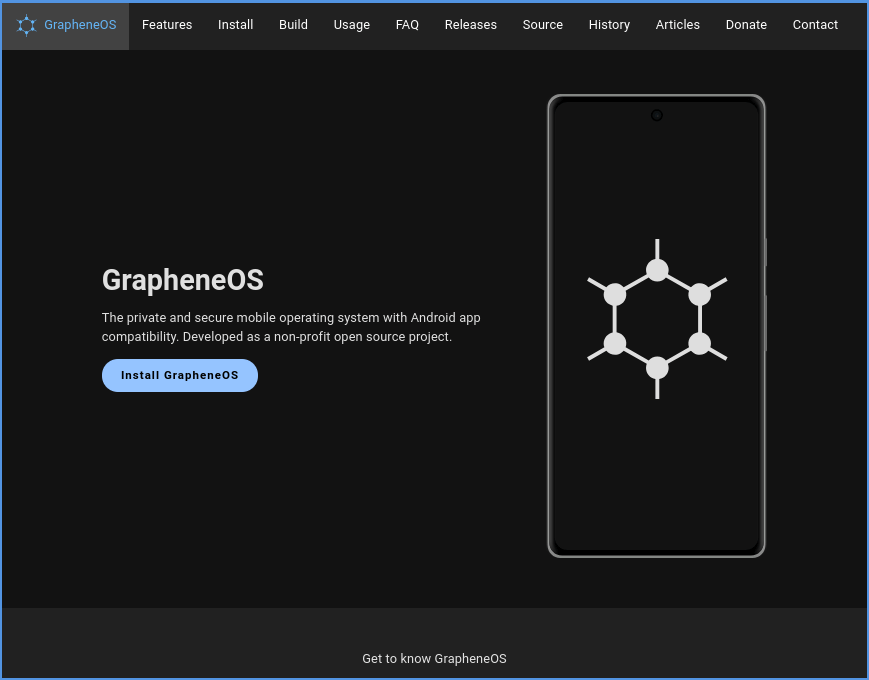
- LineageOS — An open-source Android-based OS that allows users to control their privacy settings and remove unwanted bloatware.
- e Foundation — A de-Googled version of Android that emphasizes privacy by removing Google services and offering alternative apps.
- Ubuntu Touch — A mobile version of the popular Ubuntu OS, focusing on open-source principles and user privacy.
Other Google alternatives
Here are more alternatives for various Google products:
Google Forms alternative — JotForm AI is an AI-powered online form builder. Free and paid plans.

Google Keep alternative — Below are a few different Google Keep alternatives:
- Standard Notes — A great alternative note-taking service. It is secure, encrypted, and free with apps for Windows, Mac, Linux, iOS, and Android (web-based also available).
- Joplin — Another great option that is open source and works on Windows, Mac, Linux, iOS, and Android.
- Zoho Notebook — With apps for desktop and mobile devices.
- QOwnNotes — An open-source file editor with Nextcloud integration.
Google Voice alternatives — JMP.chat (both free and paid), Line2 (paid)
G Suite alternative — Zoho is probably the best option
Google Firebase alternative — Kuzzle (free and open source)

https://eylenburg.github.io/android_comparison.htm Here is a great chart comparing different AOSP distributions (alternatives to stock Android). Can you do your own review of alternative operating systems? The two sections above don’t give much detail. Windows and Android collect more data than any browser or individual app or ISP you would want a VPN for.
Is Authy safe to use after recent data breach?
I forgot to say Cloudflare, a service that provides security for websites, is now using hcaptcha instead of Google’s reCaptcha to provide the websites with captchas. https://blog.cloudflare.com/moving-from-recaptcha-to-hcaptcha/
And https://privacypass.github.io/ is an extension that lets you increase your privacy and avoid the annoyance of captchas, by bypassing captchas. I have not tried it to be able to comment on it.
So what do you think of the Veo 3?
Alternatives to Google’s reCaptcha:
– http://www.hcaptcha.com/about – better privacy. zero-tracking “of Personally Identifiable Info”, supports machine learning using customers’ “blinded data”.
– mCaptcha.org – zero-tracking and FOSS
Hi there. Newbie here. Just finished up a course on digital reporting which introduced me to all kinds of things. So, my question here is from the Dumb Question Department…does one have to download all of these things in order to use them? Thank you for your patience. NewB
If it’s an app, which most of these are, yes. If it’s a website, no.
Thank you Alex for compiling these Google alternatives!
Similar to other posters, my attempts at pivoting away from Google have occurred in fits and starts because I did not have a list like the one you created. I feel much more confident in breaking my Google dependency.
Now, I just have to see if other map providers have arbitrarily renamed the Gulf of Mexico…
I recommend the search engine Kagi (kagi.com).
I’ve often thought I’d like to use alternatives and ended up going back to Google for the seductive convenience of things working simply and things working in sync.
It is for instance much more convenient for me to search for something with an engine that knows where I am located and what I’m usually looking for.
I.e. as a gardener who also shops online, when I “google” a plant, I get regional (France) results first along with information whether this plant is for sale in my region, what it costs and if it is available at the moment.
MetaGer needs a key and YaCy wants me to make my own search engine…
Mojeek just gives me a jumble of English-language results without pictures, explaining what the plant is.
DuckDuckGo returns mostly English language results.
SwissCows gives me French results with small pictures, but no information on which sites are sales vs info sites. It’s AI-Bot does a nice summary of websites but does not even mention whether they are resellers or not. And its site preview is pretty slow.
Ecosia, Brave, and Qwant look most similar to Google but except for Brave also don’t have any explicit sales info tie-in.
That said it’s always good to know the alternatives, so thanks a lot for this list!
I had Brave but it was hard to save things to anywhere and it kept asking me to get points or something to get rewards.. Something like that, anyway not as easy ss chrome where ibhave couple thousand bookmarks. Used Proton too but often was blocked while searching.. Im just not all that savvy. Firefox I had with old apple computer, actually Mozilla before Firefox
You can easily disable Brave Rewards and import your Chrome bookmarks into Brave. “Hard to save things to anywhere”? What do you mean?
oops I missed seeing Odysee on your YT alternative list when I first read it. disregard that part of my last comment
For Android alternatives what about CalyxOS and GrapheneOS?
https://odysee.com/@techlore:3/Privacy—Security-of-Mobile-Operating-Systems—Go-Incognito-4.3:0?t=254
hi, good list.
I would add Magic Earth as Maps alternative. been using it a week now, and it seems solid.
Right! Great app from 2 teams, one from Netherland and the other one from Romania.
Where did all the comments go???
For youtube alternatives:
– bit.tube is down.
– I checked d.tube and the website was broken for me. I tested it on both Firefox and Brave with content blockers and similar add-ons basically disabled.
– Where is Odysee.com? The company went down but the site is still up and has good content.
– Please add Playeur.com (formerly Utreon).
Some interesting information about Playeur, which is relevant to Youtube competitors in general: https://playeur.com/blog/on-censorship-free-speech-and-algorithms-24/ It explains that the problem with YT that most alternatives attempt to solve, is misidentified as censorship, and that the opposite, free speech, makes those alternatives doomed to fail as a replacement with mass appeal. They say that the real problem is the way YT implements the algorithms, and the solution is letting the viewers control the algorithms (while the platform maintains certain content rules).
One major way people use youtube.com is to just listen to music and watch music videos. (BTW there is also music.youtube.com which is like Spotify) . Can you list alternatives for music listening specifically, especially platforms with music videos, that don’t require opening an account (like Spotify does)? For a good library of music videos, the only one I know of is Odysee. For just audio, there is bandcamp and soundcloud. tubo.media is a proxy for youtube, soundcloud, and bandcamp.
Also, if there are similar platforms for podcasts with video, I would appreciate you adding that too.
Hi Jungle, we did a site migration from RestorePrivacy.com to CyberInsider.com and a lot of the comments unfortunately got lost in the shuffle. Feel free to add any new comments you like.